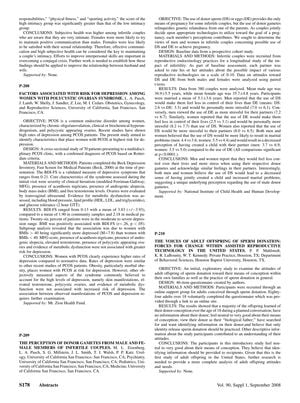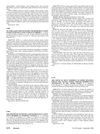The Voices of Adult Offspring of Sperm Donation: Forces for Change Within Assisted Reproductive Technology in the United States
September 2008
in “
Fertility and Sterility
”

TLDR Adult offspring of sperm donation generally feel positive about their conception and view the donor as their biological father.
The document presents findings from various studies related to assisted reproductive technology and its psychological impacts. One study with 70 patients diagnosed with Polycystic Ovarian Syndrome (PCOS) found that women with PCOS have higher rates of depression compared to normative data, with obesity, particularly morbid obesity, being a risk factor for depression. Other symptoms of PCOS, such as skin manifestations, elevated testosterone, polycystic ovaries, and metabolic dysfunction, were not associated with increased risk of depression. Another study analyzed data from 380 infertile couples and found that both men and women felt less control over their lives and more stress when using donor gametes, with the use of donor sperm (DS) believed to lead to more marital problems and a decreased sense of having jointly created a child compared to donor eggs (DE). Lastly, an exploratory study with 84 adult offspring of sperm donation revealed that most participants learned of their donor conception after the age of 18, feel neutral to very good about their means of conception, view their donor as their biological father, and support the practice of only identity-release sperm donation. Further research is needed to understand the attitudes and needs of adult offspring conceived through sperm donation.





